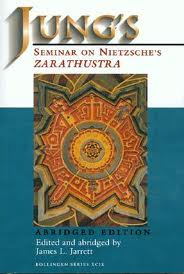 “Ye know only the sparks of the spirit: but ye do not see the anvil which it is, and the cruelty of its hammer” (Lecture VI, 9 June 1937). As mentioned in Part 1, Nietzsche’s intuitive genesis presents a new picture of geist (spirit): the “sparks” produced when a hammer strikes an anvil representing the new (spirit) of his age (the Zeitgeist). Nietzsche’s image reflects upon his keen observation that by the end of the nineteenth century, the educated European possessed or was possessed (1) by the tremendous ideas that shook the foundations of society. What appeared on the outside was that the leaders in scientific and philosophical research had adopted a “mechanistic” (e.g. scientific / materialistic) approach and conception to life. Though the philosophical approach of the previous Protestant religious tradition still predominated among the masses and in the more conservative halls of academia, Nietzsche saw more clearly than others that a new standpoint, an entirely new Weltanschauung (or “world view” / attitude) irrevocably and eventually predominate among the knowledge leaders. This new Weltanschauung in which intellect was the new “spirit” or, said differently, intellect replaced the old religious conception of spirit. For the centuries since Luther, an underlying psychological attitude guided collective and personal life giving an unconscious foundation to its morals and ethics. Now this era had ended. Jung comments on this saying: “[This was] the mistake of the 19th century, or the magic if you like to say so. We thought we were mighty magicians and could fetter the spirit in the form of intellect and make it serviceable to our needs … “ (Lecture VI, 9 June 1937). The Nazi movement When intellect replaces spirit, it undergoes a “deification” which I use not in the metaphysical or theological sense, but psychologically as meaning a personification of a dynamism in the unconscious. And when such an activation of the unconscious is not subjected to individual human reflection it expresses itself autonomously in institutions acting with compulsivity, a power-psychology, and not having an ethos of tolerance of other standpoints. Jung eventually understood that when such an attitude replaces the traditional religious conception of spirit that eventually a conscious hubris results. The ego has left its place amidst humanity and inflates to grandiose size. And this too affected Nietzsche so that he didn’t consider or, more accurately put, was psychologically blinded to the destructive aspects of some of the ideas expressed in “Thus Spake Zarathustra”. These ideas possessed an enormous stickiness (2) indicative of the presence of an activated unconscious idea (archetypal) that the later Nazi movement adopted and which it would inculcate itself with and spread to others. Notes 1. By “possessed” I mean that from the psychological standpoint, the scientific collective of this era were for the most part gripped by an unconscious drive of fascination (in German, Ergriffenheit, meaning “a state of being seized or possessed”). This drive, which served well to aid the new discoveries which would take place, created the psychic tension necessary to dethrone the old scientific models, for instance the theories of ether in physics or phlogiston in chemistry. When the underlying psychological basis for a model in any field of science or psychology no longer lays silent in the unconscious, individuals can then see new things about the world, and in the case of the scientific mind, the end of the nineteenth century generated a dramatic influx on new ideas about the material world. Consciously, the intellect leaders of the era would have said that the old models now longer fit the facts of life as they are now observed. 2. Malcolm Gladwell in his book “The Tipping Point” writes this: "Stickiness means that a message makes an impact. You can’t get it out of your head. It sticks in your memory” (p. 25).
0 Comments
|
On Smartphones, click on the above form and enter your blog in the "COMMENT" section.
Archives
June 2014
CategoriesAll Child Psychology Consciousness Development Dreams Ego Fixation Freud Fromm Hillman Hyperactivity Incest Individuation Intellect Jung Books Articles Mandala Self Spirit Taoism The Four Functions Unconscious Visions Seminar Word Association Test Working With Images |
 RSS Feed
RSS Feed
